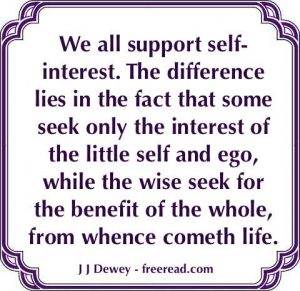
Group Synthesis, Part 3
(3) There are many groups out there covering almost every subject. How do I go about choosing one right for me? Aren’t most of them saying the same thing?
Some have the attitude that there isn’t much difference in the quality of the various spiritual groups. “If you’ve seen one, you’ve seen them all” is the mantra of some.
The fact is, just as each individual is different so are groups and just as you would not want to pick a marriage partner at random neither should the seeker just pick the first group that comes along.
DK emphasizes the importance of using discernment in our choices:
The disciple in training for these higher realisations is urged to practice the faculty of discrimination. You have been so urged. The initial and normal interpretation and the immediate effect of the practice is to teach the disciple to distinguish between the pairs of opposites. Yet just as the disciple in his early training discovers that the discriminating process has naught to do with the choice between recognised evil (so-called) and recognised good, but concerns the more subtle pairs of opposites such as right and wrong silences, right and wrong speech, right understanding and right indifference and their opposites, so the man who is reacting to these higher laws discovers that the discrimination to be shown is again still more subtle and is—for the bulk of the aspirants in the world today—still a meaningless objective. Esoteric Psychology, Vol 2, Page 175
The point he is making here is that as the seeker advances along the path the correct and incorrect choice becomes more subtle. When we were young that which was right and wrong as taught by our parents was pretty simple and black and white, but as one progresses it takes a greater mental effort to see what the right choice is. This progresses to the point that the average person could not eve understand the subtleties of the choices that confront the advanced disciple.
So when any major choice is set before us we must use the mental faculty of discernment to ascertain what we are getting into and where it will take us.
This particularly applies to groups as some can be quite demanding of time.
To find the right group a seeker must first find where they are. If he is interested in physically attending one then he must find one in his area. Unfortunately, many complain that there is little or nothing available. A seeker is fortunate if he does find one of value within easy driving distance. The website “meetup.com’ is a good one to help people find like minded groups in their local area. Local publications are also a good source.
We are fortunate to live in an age where distance poses little barrier as through the internet the seeker has many choices for groups and Zoom gives us the opportunity to have meetings almost as real as the in person ones.
Facebook is most likely the greatest resource of groups as it hosts a whopping 10 million of them. Out of ten million there is something for just about everyone.
In addition, many host groups through other services such as Google or on their own web page. If you cannot find what you want on Facebook just Google your favorite subject or author and a little surfing may lead you to like-minded group. A number of authors and teachers offer group services and classes on their web pages.
In searching for a group the seeker must ask himself if he wants to just have a loose association and learn a few things or does he want something that involves some type of group work and closer connections. If he wants something worthy of intense dedication then this will require some searching. The seeker may have to join numerous groups before he finds a good fit.
If, after searching through he millions of groups available he cannot find one that feels right he can easily create one of his own. If he sounds the right note he can draw like minded souls interested in the same material and goals.
You will know you are in the right group when two things occur.
(1) The knowledge presented registers with your soul and helps center your attention on the light.
(2) You feel a soul connection with the majority of the people in the group, especially the leader or leaders.
Of course, some you will sync with more than others but this is normal. No matter which group a disciple joins he will find that he must apply significant effort in overlooking personality imperfections and seeing the Christ within each member.
(4) Should I join just one group or several?
There are many on Facebook who are members of over a hundred groups. Do you think they pay attention to them all? Not likely. Most will only participate in a handful at most.
The seeker must guard against the scattering of energy by being active in so many groups that he cannot positively contribute to any.
The seeker would be wise pick one main group that will be the center of focus and maybe have several others for a casual relationship.
The extent of his outreach will also be determined by the free time available. If he is retired he can enjoy more latitude in mingling with several groups than if his career demands a lot of attention. Some people are so busy making a living they are lucky to free up time for one or two meetings a week. I have been there and certainly understand that problem.
The key point though is to calculate how much free time you can afford, measure it out with wisdom, scatter not your forces and find a point where participation will provide the greatest benefit.
To read part 1 go HERE , Part 2, HERE, Part 4 HERE, Part 5 HERE, Part 6 HERE, Part 7 HERE, Part 8 HERE, Part 9 HERE, Part 10 HERE, Part 11 HERE, Part 12 HERE, Part 13 HERE
Copyright By J J Dewey
Easy Access to All the Writings
For Free Book go HERE and other books HERE
JJ’s Amazon page HERE
Gather with JJ on Facebook HERE








